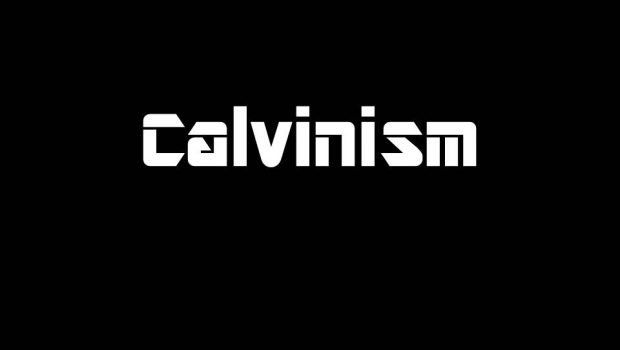The Goodness of God and Calvinism
There is a problem posited against Calvinism that often goes something like this:
- Man is, apart from grace, headed for God’s wrath in hell.
- If God is all-good, He would want to save people headed for His wrath in hell.
- If God is all-powerful, He is able to save people headed for His wrath in hell.
- If God is all-knowing, He knows people are headed for His wrath in hell.
- Not all are saved from God’s wrath in hell.
- Hence, God is either not all-good, all-powerful, or all-knowing.
- Calvinism affirms God is both all-powerful and all-knowing.
- Therefore, Calvinism must deny that God is all-good.
I admittedly could have shortened this argument, but I didn’t want to leave any hidden premises. It’s best in these types of discussions to be explicit about the premises and not make assumptions. If you’ve studied philosophy, you will immediately recognize that this is really just the traditional problem of evil (POE) applied specifically to Calvinism as a system.
One of the most common answers to this problem is called the free will defense. It undercuts the trilemma here by asserting God could be all-good, all-powerful, and all-knowing, and still allow evil (or still allow some to face His wrath in hell) just in case there was a good reason for doing so. Namely God, being loving, desires that humans have free will. But to allow this free will to be truly free entails God can’t go around negating all the choices the free creatures make. If a free creature wants nothing to do with God, that is the creature’s prerogative. God will allow that choice, and the consequences that come from it (God’s wrath in hell).
Notice that, according to this defense, God can allow people to suffer His wrath in hell (without compromising His goodness, power, or knowledge) just in case there is some superseding good achieved by doing so.
Calvinism, as a system, rejects libertarian conceptions of free will. Indeed, some Calvinists seem to reject even compatibilist conceptions of free will. So there are no hidden cards, I’m a Calvinist of the compatibilist type. I think God’s determination of events and human free will can be reconciled with one another in a way that compromises neither. At any rate, Calvinists are less inclined to appeal to the free will defense because it seems (in most cases) to assume some sort of libertarian free will.
Hence, what can the Calvinist do? Why, if God is not seeking to preserve free will, does God not save everyone? Arminians ask this question and claim, as in the conclusion of the above argument, that Calvinism presents a God who is not all-good or all-loving.
But if free will can be a superseding reason for God to allow some to suffer His wrath in hell, then it’s possible other superseding reasons exist. And if such reasons exist, Calvinism has no more difficulty affirming that God is all-loving and all-good than Arminianism does.
My first thought in this regard is that God does have a superseding reason to elect some and damn others, but that we simply don’t know what it is. Many people seem to think this is a cop-out, but consider that God is all-knowing and we are not. The odds God has reasons to do things that we do not understand are high simply in virtue of His omniscience and (by extension) His omnirationality. Omnirationality, according to Dr. Alexander Pruss, entails that God acts on any available unexcluded good reasons for an action (or, as the case may be, for not acting). Hence, if an unexcluded good reason exists to elect some and damn others, God not only knows what it is, but He also acts on it. We need not know what that reason is, only that God is omniscient and omnirational and so we can trust that He does in fact have such a reason (or reasons, there’s no need to assume God acts only on one reason when multiple reasons could favor an action).
I think on this basis alone Calvinism has successfully avoided the above trilemma. But some people are still curious as to what such a reason might be if not free will. I think we can gesture toward some possibilities, some of which seem to be suggested in Scripture and others of which are more philosophical:
1. The Free Will of Adam: While Calvinism cannot affirm libertarian free will generally, it is quite possible to affirm it for Adam and Eve before the fall. If Adam represented humans as our federal head (see Romans 5 for this idea), then we had libertarian free will, but we only had it in Adam. Hence, the damnation of some is a consequence of Adam’s choice, his choice could not have truly been free if all of the consequences of it are completely negated. Most Arminians will not affirm federal headship, but we don’t need them to. The charge here is one of logical inconsistency, so we only need a logically consistent solution to negate the charge. The plausibility of the solution is, for present purposes, irrelevant.
2. The Display of God’s Power: This suggestion comes from Romans 9:16-17. Perhaps God displaying His power, even in the damnation of some, is such a good as to supersede the good of saving all. Perhaps in this way God’s name is proclaimed more widely than it otherwise would be, just as through the plagues put on Egypt and Pharaoh God’s name was made known to surrounding nations (Joshua 9:9). Again, Arminians may not like this, but it remains logically consistent and the above charge is one of inconsistency.
3. The Display of God’s Glory: This comes from Romans 9:22-24. Paul argues that God displays His wrath to emphasize and make known the “riches of His glory on objects of mercy” (HCSB). That is, God’s wrath and mercy are contrasted in a way that clearly demonstrates the greatness of His mercy. But for this to happen He must display wrath. I know some Arminians object to the idea of God glorifying Himself, but what more loving thing could a maximally great being do? If God failed to glorify Himself that would not be humility, but self-denial and blasphemy.
4. To Motivate Service and Obedience: I don’t know that I can point to a specific passage that favors this one, so chalk it up to a philosophical suggestion if you like. But the idea is that by displaying His wrath, God motivates obedience and service among His people. That is, if we know all people will be saved despite what they do in this life, a significant motivation for goodness has been removed. We as humans are really bad at being good for goodness’ sake. Perhaps God wanted to leave an additional barrier to wickedness in place, and He achieves this significant good by doing so.
I know several of these suggestions, especially 2 & 3, will be unpalatable to my Arminian friends. Thankfully, their palates do not determine logical consistency. Their charge was one of logical inconsistency, and I’ve at least shown it is possible to maintain that God is all-good on Calvinism. Possibility is all that is necessary to clear a charge of logical inconsistency.
Additionally, I would like to say I’m concerned about Arminians who use the terms “love” and “goodness” divorced from explicitly biblical definitions. If the claim is that “God is not good” by some secular standard of goodness, I don’t care. I’m not concerned that God meets a standard of alleged “goodness” set up in a secular system, I’m concerned that God act consistently with His own nature because He IS good. It’s not simply the case that God must meet a standard of goodness to be good, rather, God is goodness itself and if He were not the way He is there would be no such thing as goodness whatsoever.
This does not mean “might makes right.” God is constrained by His own nature, but He knows His own nature far better than we do. If He reveals Himself as acting in a way that we think is not good, but we know by nature God is good, then we must assume the problem is not with God’s goodness but with our thinking about goodness.
Soli Deo Gloria,
Josiah










